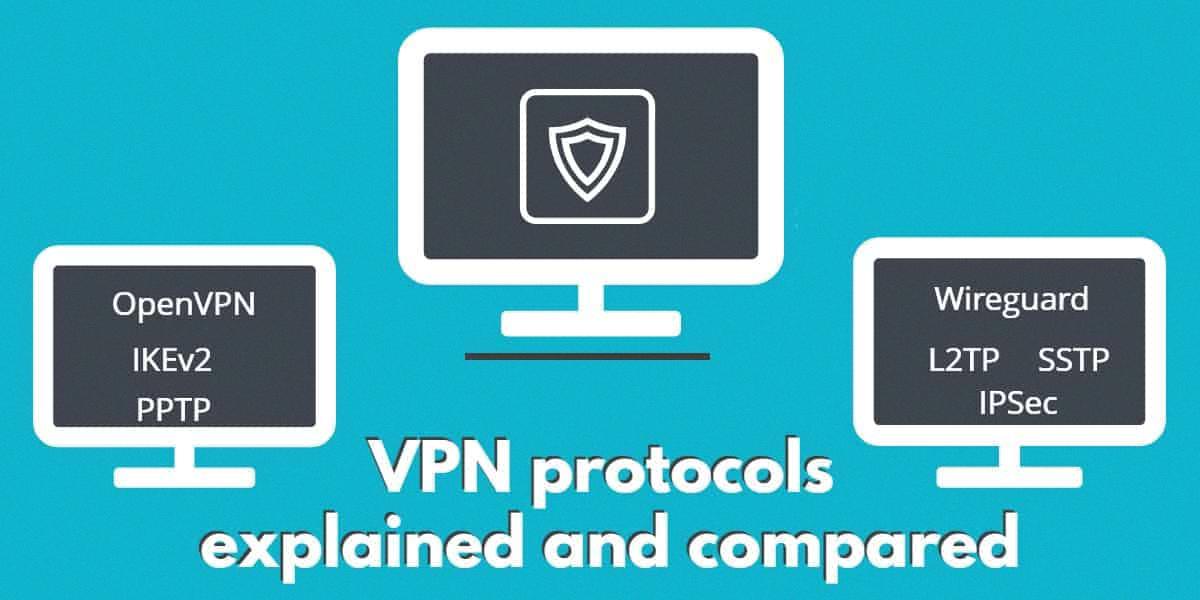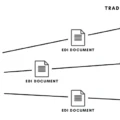When it comes to choosing a VPN protocol, there are two major options: OpenVPN and WireGuard. However, it can be difficult to decide which one is the best option for your needs. In this blog post, we will compare OpenVPN and WireGuard in terms of performance, security, and compatibility.
Performance-wise, WireGuard has been shown to be significantly faster than OpenVPN in many tests. According to a recent comparison of VPN protocols conducted by CyberGhost, WireGuard was on average 58% faster than OpenVPN across all tested locations. The performance advantage is even more pronounced with nearby (low latency) servers compared to long-distance (high latency) servers.
In terms of security, both protocols use encryption algorithms such as AES or ChaCha to protect data sent over the internet from being intercepted or decrypted. However, some experts believe that WireGuard’s encryption is stronger than OpenVPN’s due to its modern cryptographic protocol design.
Finally, when it comes to compatibility with various devices and operating systems, OpenVPN is more widely supported than WireGuard since it has been around for much longer. That said, most premium VPNs offer either OpenVPN or WireGuard as an option and both protocols are available on Android and iOS devices as well as Windows and Mac computers.
both OpenVPN and WireGuard offer excellent security features as well as good speeds depending on your location. Ultimately the choice between the two depends on factors such as performance requirements, platform compatibility, and personal preference.
Comparing the Speed of WireGuard and OpenVPN
WireGuard is generally much faster than OpenVPN. On average, WireGuard was about 58% faster than OpenVPN across all the locations we tested. This performance advantage increases as the latency of the server location decreases. For nearby (low latency) servers, WireGuard can be up to 500% faster than OpenVPN in some cases. As the latency of the server increases, this performance advantage shrinks but still remains significant. In long-distance (high latency) server locations, WireGuard is still around 25-30% faster than OpenVPN in most cases. This makes WireGuard an ideal choice for those looking to maximize their connection speeds while also taking advantage of the security and privacy benefits offered by a VPN service.

Source: laptopmag.com
Is WireGuard the Best Option for a VPN?
WireGuard is one of the best VPN options out there. It’s a fast and secure protocol that offers great speeds and strong encryption. Compared to OpenVPN, WireGuard is faster and easier to configure, making it an ideal choice for users who want a quick and reliable connection. Additionally, WireGuard is open source and regularly audited for security, so you can be sure your data is safe. Ultimately, whether WireGuard is the best VPN for you depends on your needs, but it’s certainly worth considering if speed and simplicity are important to you.
Can WireGuard Be Vulnerable to Hacking?
WireGuard is a relatively new technology designed to increase the security and privacy of VPN connections. It uses strong encryption, advanced cryptographic techniques, and modern authentication methods to ensure that your data is secure and private. While no system is 100% hack-proof, WireGuard has been designed with security in mind, making it one of the most secure VPN protocols available today.
WireGuard’s core design philosophy focuses on simplicity and security. It uses state-of-the-art cryptographic algorithms such as Curve25519, ChaCha20, Poly1305, and BLAKE2 for authentication, encryption, and integrity validation. These algorithms are widely considered to be very secure and difficult to break or exploit. Furthermore, WireGuard employs a minimalist design which means there are fewer attack vectors that can be used to compromise the system compared to other VPN protocols.
Additionally, WireGuard also utilizes ephemeral keys which are generated anew for each session – this makes it difficult for hackers to conduct long-term monitoring or man-in-the-middle attacks due to the lack of static keys or certificates that can be exploited over time.
Overall, while no system is completely invulnerable to hacking attempts, WireGuard provides industry-leading security measures which make it extremely difficult for hackers to successfully penetrate your connection or steal your data.
Comparing WireGuard and OpenVPN on Surfshark
WireGuard® is generally the preferred protocol when speed is a priority, which makes it a great option for streaming and downloading media. It’s also very secure and easy to set up, making it a top choice for most users. On the other hand, OpenVPN is a tried and true VPN protocol that provides very strong security but tends to be somewhat slower than WireGuard® in most cases. OpenVPN may be better suited for users who prioritize security over speed. Ultimately, the choice between WireGuard® and OpenVPN depends on your individual needs and preferences.
Does WireGuard Conceal IP Addresses?
Yes, WireGuard can hide your IP address from websites and other online services. When you connect to a WireGuard server, your device is only able to see the IP address 10.2.0.2, and the website or service you are visiting is only able to see the public IP address of the server you are connected to. This means that your true IP address remains secure and private.
Is WireGuard Free?
WireGuard is a free and open-source software project, so it does not cost any money to use or deploy. The only cost associated with WireGuard would be the hardware required to run the software (e.g. a router or server). Additionally, you might incur costs for managing your WireGuard network, such as for professional support services.
The Benefits of Using WireGuard
WireGuard is a relatively new VPN protocol and has not had the same level of testing and scrutiny as some of the more established protocols. It is possible that previously undiscovered flaws could be discovered in its cryptographic primitives, which could weaken or entirely break the protocol. In addition, WireGuard relies on a single cryptographic primitive (Curve25519) for key exchange and authentication, while other protocols often use multiple primitives to provide more robust security. Finally, WireGuard is not extensible and doesn’t have a mechanism for adding new cryptographic primitives to ensure its long-term security. For these reasons, it may not be suitable for all applications where robust security is required.
Can WireGuard VPN Be Traced?
Yes, WireGuard VPN can be tracked. While WireGuard is designed for security and speed, it does not offer the same level of anonymity as other VPNs do. By default, WireGuard stores user IP addresses on the VPN server indefinitely, which means that a third party can track your activity as long as they have access to the server logs. In addition, WireGuard does not use any kind of encryption or obfuscation techniques to hide your traffic from surveillance. Therefore, if you are looking for a VPN with more privacy features, you should consider using a different service.
Does WireGuard Alter IP Addresses?
No, WireGuard does not change your IP address. It uses a static tunnel IP address for the duration of the connection. This means that the tunnel IP address assigned to you will be the same every time you connect to a WireGuard server. This is in contrast to other VPN protocols such as OpenVPN and IPSec, which can assign a different tunnel IP address on each connection.
Can WireGuard Be Detected?
Yes, WireGuard can be detected. While there is no standard port for WireGuard, it can be detected through heuristics. Heuristics involve looking for patterns and/or features of the protocol to identify them. For example, a network administrator might use heuristics to detect if a connection is using WireGuard by looking for certain packet types or sizes that are unique to the protocol. Additionally, some vendors may have specific methods of detecting WireGuard traffic on their networks.
The Speed of WireGuard: Exploring the Benefits of a Fast Network Connection
WireGuard is fast because of its use of state-of-the-art cryptography code, and its low-level component living within the Linux kernel. This allows it to avoid the overhead associated with running a VPN in userspace, which results in faster connection speeds and better performance overall. Additionally, WireGuard’s ease of deployment makes it even faster to get up and running – both the client and server components are simple to install, making it a breeze to set up and use.

Source: comparitech.com
Is WireGuard the Fastest VPN Protocol?
WireGuard is widely regarded as one of the fastest VPN protocols available today. It provides a secure connection with higher speeds than other popular protocols, such as OpenVPN and IKEv2. WireGuard is highly optimized for speed, using advanced encryption techniques that are faster than traditional methods. The protocol is also low on CPU usage, which can improve speeds even further. As a result, WireGuard VPN connections are typically faster than those of other protocols. In addition, WireGuard’s modern design makes it easier to configure and use than older protocols like OpenVPN or IKEv2.
Conclusion
In conclusion, it is clear that WireGuard is the faster choice over OpenVPN when it comes to VPNs. WireGuard offers up to 30% faster speeds than OpenVPN, making it the ideal choice if speed is an important factor in your decision. Additionally, WireGuard provides an increased level of security through its combination of ChaCha encryption and high-performance protocols. However, OpenVPN should not be discounted as it can still provide reliable performance with a strong level of encryption. Ultimately, the best protocol for you will depend on your needs and preferences.








